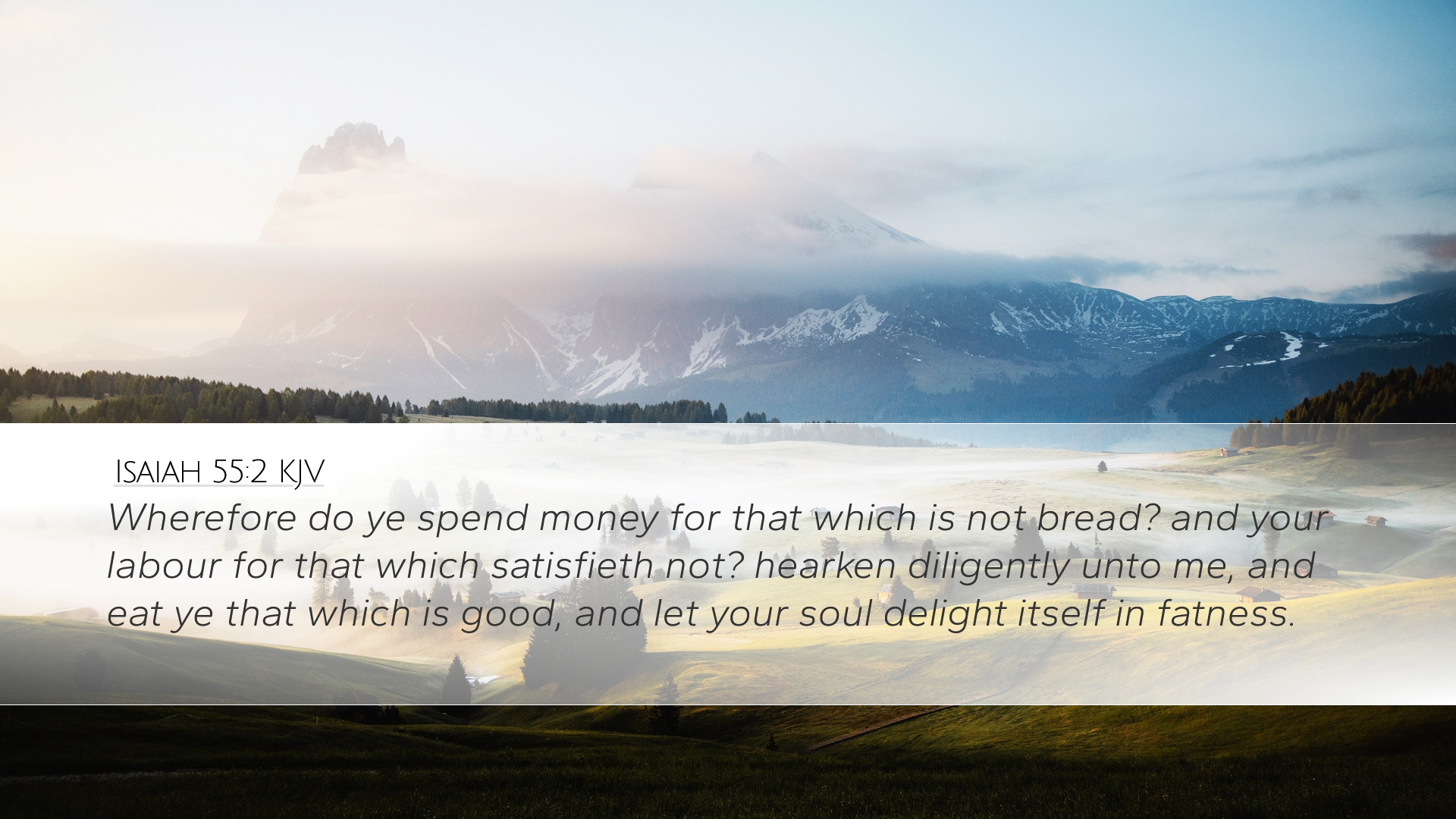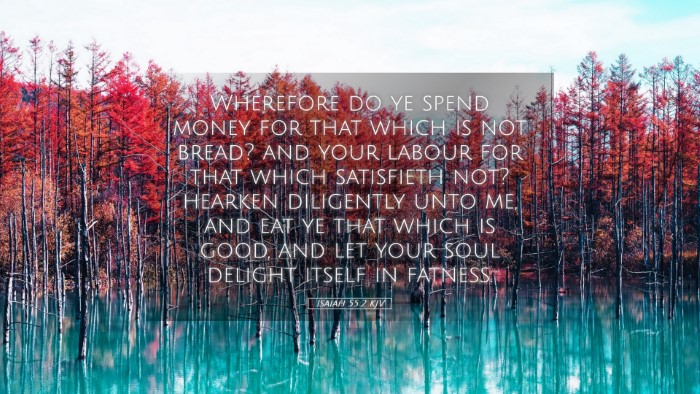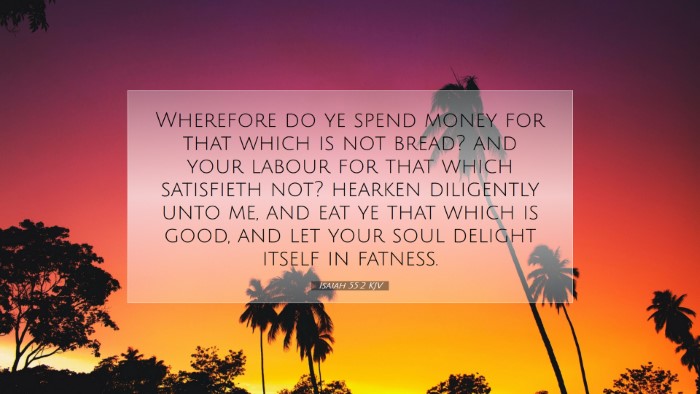Commentary on Isaiah 55:2
Verse: "Why do you spend money for that which is not bread? and your labor for that which satisfieth not?" (Isaiah 55:2, KJV)
Introduction
Isaiah 55:2 stands as a profound inquiry into the nature of human satisfaction and the pursuit of true sustenance. This verse calls attention to the futility of seeking fulfillment outside of God's provision, urging readers to contemplate their priorities and the true value of what they pursue in life.
Historical Context
The Book of Isaiah addresses the people of Israel during a time of great turmoil and impending judgment. Yet, intermixed with warnings of judgment are also messages of hope and restoration. This chapter particularly represents an invitation to abundant life and comfort for those who feel weary from spiritual exile.
Exegesis and Analysis
This verse employs rhetorical questions to provoke thought and reflection. The metaphor of "bread" signifies not just physical sustenance but the deeper spiritual nourishment that comes from a relationship with God.
-
The Concept of 'Bread':
In biblical Hebrew, bread often represents basic needs and spiritual sustenance. Here, it challenges the audience to consider what they truly consume—both spiritually and materially.
-
The Call to Reflect on Labor:
The phrase "your labor for that which satisfieth not" implies a warning against futile efforts. The people are directed to critique their pursuits, suggesting that hard work unaligned with divine purpose leads to emptiness.
Insights from Matthew Henry
Matthew Henry emphasizes that the question posed in this verse reveals the empty pursuits of those who stray from God’s paths. He notes:
-
Spiritual Hunger:
Henry points out that just as people seek physical bread to satisfy hunger, they often neglect the spiritual sustenance offered by God, which leads to deeper satisfaction.
-
True Value:
He asserts that the things of this world cannot fulfill the deep yearnings of the soul, thereby urging believers to seek after that which genuinely brings life—God’s word and Spirit.
Insights from Albert Barnes
Albert Barnes provides a theological reflection that deepens the understanding of the human condition as presented in this verse:
-
The Nature of Desire:
Barnes discusses the insatiable nature of human desire, highlighting that people often chase after temporary pleasures, failing to recognize what truly satisfies.
-
God’s Promise:
He notes that God offers His people a true remedy—an invitation to partake of His goodness without cost, contrasting the rhythms of human effort with divine grace.
Insights from Adam Clarke
Adam Clarke provides a rich commentary that further elucidates the spiritual ethos behind the text:
-
Metaphorical Richness:
Clarke interprets the phrase “spend money on what is not bread” as a metaphor for engaging in self-destructive habits that provide no real satisfaction.
-
Invitation to Abundance:
He emphasizes the generous nature of God, who invites the weary to find rest and sustenance in Him, highlighting divine mercy and the invitation to redemption.
Theological Implications
The theological implications of Isaiah 55:2 extend into the gospel narrative itself. The invitation to partake in divine sustenance can be correlated with Christ’s declaration as the Bread of Life (John 6:35). Believers are reminded that all earthly efforts to attain fulfillment are fleeting compared to the eternal satisfaction found in God.
-
Christ as Fulfillment:
As one contemplates this passage, it encapsulates the overarching message of the Bible—Jesus Christ fulfills every longing of the human heart, establishing justice, peace, and eternal life.
-
The Urgency of the Invitation:
This verse also serves as a call for evangelical urgency—laying hold of the abundant life offered in Christ, by rejecting the empty promises of the world.
Practical Application
Moving beyond theoretical contemplation, Isaiah 55:2 challenges individuals—especially leaders and scholars—to engage in self-reflection regarding their pursuits:
-
Assessment of Personal Goals:
One must ask whether their objectives align with spiritual growth and reliance on God, or whether they pursue interests that simply lead to burnout.
-
Encouragement for Congregations:
This verse equips spiritual leaders to guide congregations in recognizing and abandoning dissipating pursuits, instead pointing them towards Christ as the true source of fulfilment.
Conclusion
Isaiah 55:2 is a timeless reminder that the true sustenance for both body and soul is found in God alone. It urges believers to critically assess their pursuits and reliance on worldly things that ultimately offer no lasting satisfaction. As one contemplates this profound truth, may they be led to partake freely of the gifts that God offers, finding in Him a wellspring of joy and fulfillment that endures through all of life’s challenges.


